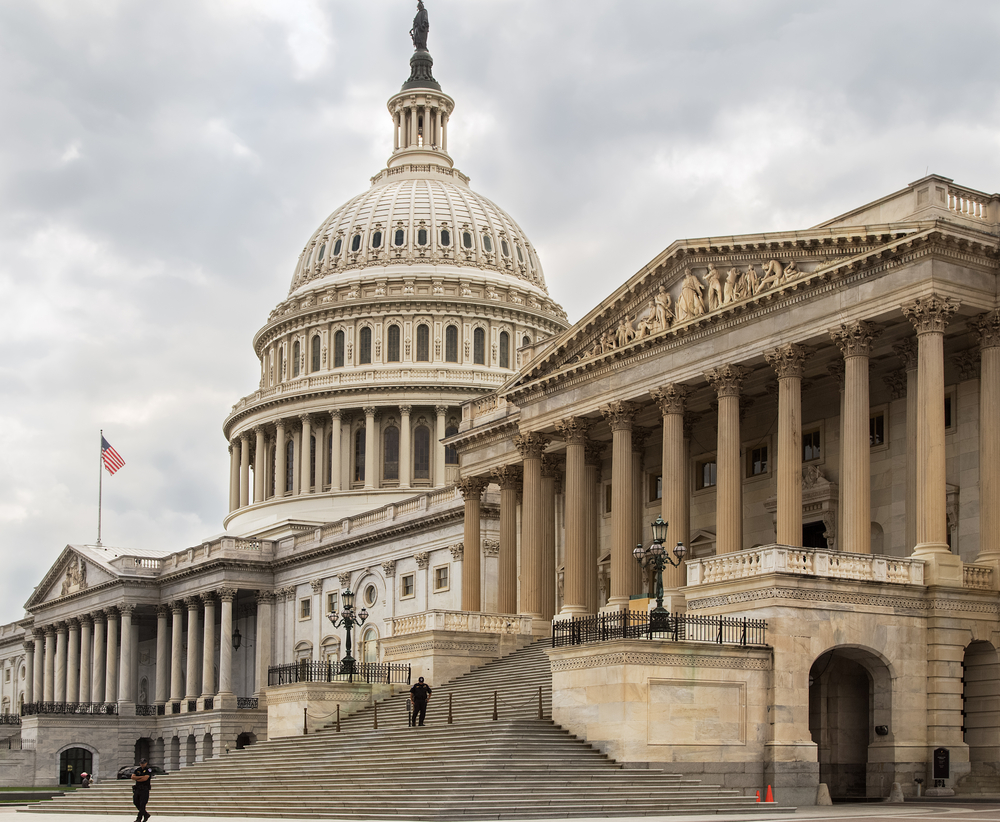Nov. 11, 2019 – As Congress works to agree on legislation that would rein in drug prices, a bill co-sponsored by Sen. Charles Grassley (R-Iowa) and Sen. Dick Durbin (D-Ill.) – which would require that list prices be included in direct-to-consumer (DTC) television advertisements – may be close to a vote.
Grassley and Durbin hoped to pass their bill (S. 1437) – the “Drug-price Transparency in Communications Act” – this week by unanimous consent; however, Sen. Patrick Toomey (R-Pa.) objected to the process and used his prerogative to put a “hold” on the legislation. Reportedly Toomey, who opposes the bill, wants a recorded roll-call vote to be taken on the bill, and talks currently are underway to resolve the question so that the bill can be brought to the Senate floor.
The Grassley-Durbin proposal would essentially enact into law what the Trump administration tried to put into effect this past May by regulation when the Centers for Medicare and Medicaid Services (CMS) issued a ruling that the wholesale acquisition cost (WAC) of a drug must be included in television advertisements.
“The CMS proposal was flawed both because the WAC is a misleading metric that rarely reflects what a patient would actually pay for a prescription drug, and also because the measure would violate First Amendment rights against ‘compelled speech,’” according to Coalition for Healthcare Communication Executive Director Jon Bigelow.
After a lawsuit was filed by three pharma manufacturers and the Association of National Advertisers, implementation was blocked by a District Court judge who ruled that CMS did not have the authority to institute this regulation, without speaking to the underlying First Amendment issues (more details here); CMS is appealing that ruling (details here).
Bigelow states that the same practical problems pertain to the Grassley-Durbin proposal: As reported by the Washington policy outlet The Hill, a spokesman for Toomey said the bill “requires companies to include in advertisements misleading information that could easily deter people from seeking care.” And the First Amendment issues raised about the CMS regulation also pertain to the Grassley-Durbin proposal, although it is not yet clear whether any parties would file a lawsuit to block enforcement of the legislation.
“If you have a sense of déjà vu, it’s because Sens. Grassley and Durbin offered a similar measure in August 2018 as a rider on an appropriations bill,” Bigelow commented. “At that time, the proposal was approved by the Senate but died in conference committee due to objections in the House, which was at the time controlled by Republicans. Assuming it is passed in the Senate, the bill is likely to now find a much warmer reception in the current House and would almost certainly be signed by President Trump,” he said.
There also are concerns—notably expressed by Senate minority leader Chuck Schumer (D-N.Y.)—that the Senate should avoid enacting the Grassley-Durbin measure (or a separate bill to prevent aggressive use of patents to delay generic competition) as one-offs because that might take the momentum out of progress on the broader drug pricing packages. Some believe those packages will get bogged down in the political battles over the 2020 budget and the impeachment process, but many others believe that controlling drug prices is one of the few areas where both parties are ready to act so they can trumpet an accomplishment before the elections.
Even if the Grassley-Durbin bill is not passed by unanimous consent as a separate bill, Bigelow noted, there appears to be enough support that it would be folded into a broader bipartisan compromise plan on drug pricing.




